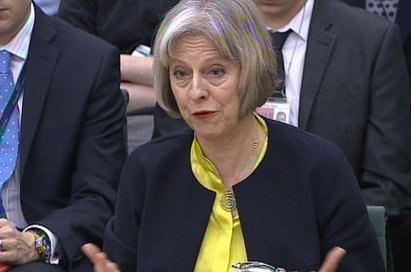Few public inquiries have been so fraught in their beginnings as the investigation into the handling of cases of the sexual abuse of children.
Since last July two establishment figures have been appointed to chair the inquiry and both have been forced to resign. The fiasco has served only to alienate the very people who suffered the abuse and for whom the inquiry was supposed to provide some means of justice and closure. Now, the Home Secretary, Theresa May, is hoping for third time lucky. This week she has appointed a new chair and redrawn the terms of the inquiry. But can it achieve what is expected of it, or is its scope simply too large for anything meaningful to emerge?
The sexual abuse of children is an evil with a very long history and with an equally long history of being covered up. Adults, and especially those in the establishment with reputations to maintain, have not wanted to talk about it. Victims have not been listened to. Yet it has long been known that, in particular, care homes, where vulnerable children are most in need of protection and care, have too often been the very places where the abuse has been perpetrated. And for decades there have been plenty of rumours of paedophile rings exploiting such children involving prominent figures including politicians and government ministers. That itself helped ensure the cover-up.
But the Savile scandal started the process of blowing it all open. The full extent of his abuse of children in NHS hospitals, in care homes, on BBC premises and elsewhere is still not known. But enough was exposed to make it impossible to go on looking the other way.
Several police inquiries were launched to investigate specific allegations of the sexual abuse of children. Several prosecutions were brought; some of the accused were convicted and some acquitted. Then, last summer, the government decided it needed more than just police investigations to deal with the scale of the issue.
It was prompted to act by a Labour MP, Simon Danczuk. He demanded to know what a Conservative home secretary in the 1980s, Leon Brittan, had known about alleged paedophile activities involving prominent figures, especially with regard to a file of documents he had given by a backbench Tory MP, Geoffrey Dickens, which he claimed contained evidence of what had been going on. The by-then Lord Brittan (who died last month) claimed that he had passed the file to his officials who had advised that nothing further needed to be done about it. It emerged that the files had since gone missing.
In response to this and to the widespread public outrage at what had emerged in the Savile case, Mrs May announced the setting up of a public inquiry to investigate whether ‘public bodies and other non-state institutions have taken seriously their duty of care to protect children from sexual abuse in England and Wales’. She appointed Baroness Butler-Sloss, a distinguished retired judge, to chair it.
But there was almost immediate opposition to the appointment on the grounds that Lady Butler-Sloss’s late brother had been the attorney-general in the very cabinet in which Lord Brittan had sat. She resigned, acknowledging she was not the right person to do the job since she could not command the trust of those who had been abused.
Mrs May then appointed another lawyer, Dame Fiona Woolf, the retiring Mayor of London. But she, it emerged, had been a long-standing social acquaintance of Lord Brittan. Victims objected to her too and so she also resigned. The whole exercise descended into chaos.
This week Mrs May has sought to get it all back on track by appointing a New Zealand judge, Lowell Goddard, to the job. She already has experience in her home country in investigating police handling of a child abuse case and she is far removed from the British establishment. The Home Secretary has also strengthened the terms of the inquiry. It will now have statutory powers, meaning that it can compel witnesses to give evidence and produce documents. These changes have been welcomed by Mr Danczuk and those previously hostile to the earlier appointments.
But despite this, many sceptics argue that the potential scope of the inquiry is so huge that it will be impossible for it to do the job asked of it. For it is not as if it were just the Savile case that it has to look into. The very day that the Home Secretary made her announcement her colleague, the Communities Secretary, Eric Pickles, told the Commons that the council leadership in Rotherham had resigned and that he was appointing commissioners to run things in the town.
This followed a report by Louise Casey, the senior official in charge of the Troubled Families Project, who had found that four months after the Council had been condemned for, in effect, turning a blind eye to the sexual abuse of 1,400 children in the town since 1997, it was still failing to live up to its responsibilities. ‘Both today and in the past, Rotherham has at times taken more care of its reputation than it has of its most needy,’ she wrote.
The list of cases the Goddard Inquiry will have to look into seems to get longer by the day. As well as Rotherham, there are equivalent cases in Rochdale and Oxford; there remains the mystery of the lost Dickens file; and there is the still untold story of Elm House in Barnes where it is alleged that sexual abuse of children by very prominent figures took place in the 1970s and 80s and where some children may have died as a result. Originally the inquiry was charged with looking at cases back to 1970 but Judge Goddard has suggested this may need to be extended as far back as 1945.
Given the fact that such a broad investigation, as well as dealing with genuine allegations of abuse is bound to attract bogus allegations by those who may want to pursue a grudge or scent compensation, it is likely to be overwhelmed, the sceptics say.
Judge Goddard acknowledges the problem. She said: ‘It is a very broad landscape and the inquiry is very complex and multi-faceted, but it needs to be achievable as well’. She has suggested it may take until 2018 to complete but those who have watched the Chilcot Inquiry drag on and on think it may take very much longer and even be impossible to do unless its scope is reduced rather than widened. But if that were to happen, there would be inevitable accusations that a new cover-up was underway.
So there are still many real doubts about whether the process can work. What’s your view? Is Judge Goddard the right person to lead it? Is it likely to be able to dig out the evidence it needs or has the cover-up already been too successful for us to hope ever to know what really has gone on? And is the scope of the inquiry simply too large for it to be able to achieve its aims?










